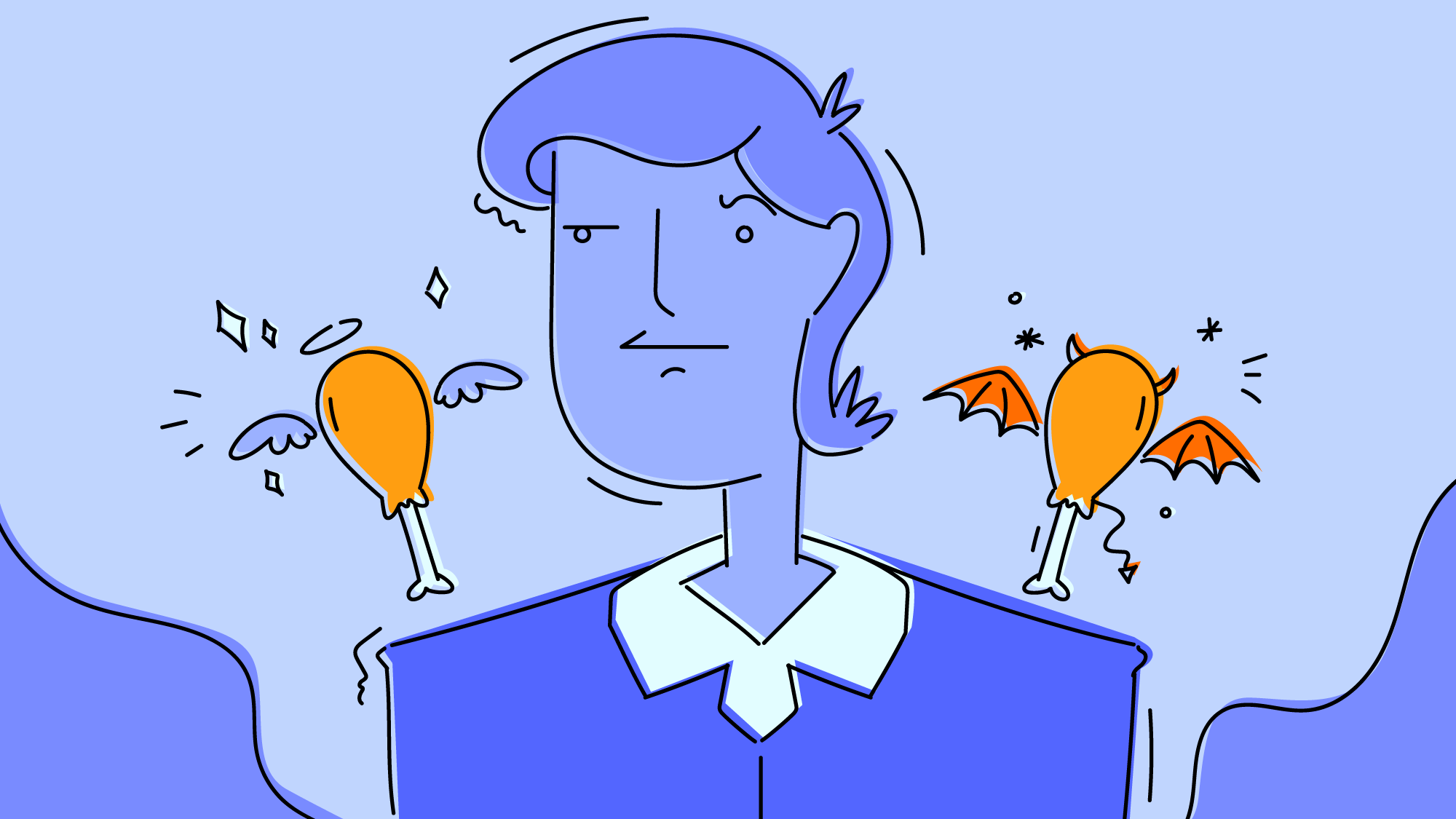Brave Food World

Over the last few years, I've mostly stopped eating meat. I'm in no position to judge anyone else about this; I didn't stop because I suddenly decided that it was wrong. I'd actually decided it was wrong many years ago, but kept doing it because the cognitive dissonance was less unpleasant than missing out on meat.
Later this reversed: now I find the cognitive dissonance more unpleasant than not eating meat, and stopped.[1] I can't feel smug because I'm basically just stimulus-response'ing away from sad feelings.
The unexpected result of this has actually been how it's changed my feelings on "bad" things. I say "bad" because there are two kinds of bad:
- Things we personally think are bad (eg. "I think Nestle is bad, I'm going to boycott them")
- Things we think are bad, but with widespread agreement from society (eg. "revenge killings are bad")
In the latter case, it's not even exactly right to say we "think" these things are wrong, it's more like a feeling. We weren't specifically reasoned into these positions as adults, they were instilled in us at a cultural level while growing up. These are things like slavery, child labor, and bride kidnapping, which modern society has actually done a pretty good job of identifying and outlawing.[2]
This is probably a good thing because this instilling seems almost universally effective, while trying to convince adults of anything is notoriously difficult. Of course, cultural indoctrination can be used for terrible ends, but we still must give the devil his due.
The end result is that we have an intellectual model on contentious issues, but more of a general intuition for widely-agreed ones. For example, how sophisticated of an argument could you make around abortion, in comparison to say, slavery?
I can immediately summon numerous points, statistics, and chains of logic for both the pro-choice and pro-life positions, but pretty much just come up with "uhhh...you shouldn't own people?" for the abolitionist position (no one even bothers to identify as "abolitionist" anymore).
Not to say that it's a weaker argument, just that it's operating at more of a gut level because we take slavery's obvious wrongness for granted.
A Meatless World
I think eventually factory farming will disappear, either because the world gets rich enough to produce more ethical meat cheaply or because meat substitutes and cultured meat makes it unnecessary.[3] In the very long run, animal slaughter may disappear because the first-principles economics of growing just the parts you want are better than growing the whole animal.
In a world where no one eats animals, though, I assume some people will still want to: we're omnivores and cultural conditioning is never 100%.
Some of these people will conclude eating meat is fine, and go ahead and do it, but I would imagine that most of those people will still refrain despite wanting to.
So how is this different from my present not-eating-meat situation?
The difference is that it's still my little personal belief, not a society-wide norm. It's more of a thought than a feeling. This is important because once society decides X is wrong, it's typically actually deciding two things about it:
-
It's wrong to X
-
It's wrong to want to X
For example, we generally agree that cheating is wrong, but we also often feel that wanting to cheat is wrong, regardless of actual cheating behavior. Anyone who does it is bad, and if you want to do it there is something wrong with you.
In contrast, while I feel bad about actually eating meat, I don't feel the least bad about wanting to eat meat. If anything, I feel slightly more ethical for not eating meat despite wanting to do so (and have been complimented by a lifelong vegetarian on this point).
However, if I lived in a meat-free future, I'd probably be beating myself up over it. Just refraining wouldn't be enough, my taste for meat itself would be evidence of a twisted character.
In the meat-eating present, I'm spared this hang-up, but the thought experiment has made me realize that the other things I feel bad about wanting are really of this same type. The distinctions seem arbitrary, so I should feel bad about doing them but not about wanting them.
Just like you can only truly be brave when you're scared, perhaps you can only be truly ethical when you want to do something bad, but don't.[4]
With some, often very weird, exceptions. ↩︎
Enforcement is another question. ↩︎
Even with widespread meat substitutes, I assume some people will still want to eat regular meat, just that it will be of the free-range, grass-fed, etc. variety. ↩︎
Virtue Ethics aside. My sense is that this entire framing fits into the Jungian concept of the Shadow. ↩︎